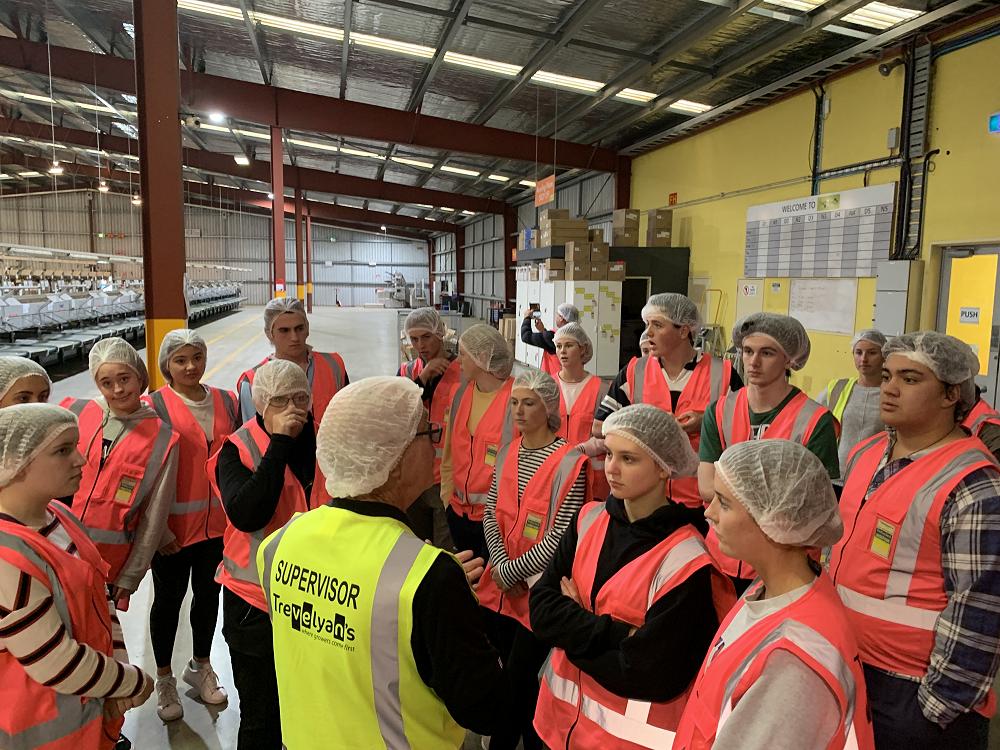One of the first questions I normally get asked about the new Agribusiness course is how it is different to Agricultural and Environmental Science. My answer is simple: it's at least 95% different!

In order for us to gain registration as a new subject with NZQA, the course content (assessment standards) had to demonstrate a 95% uniqueness to the Agricultural Science course content. Of course, this was not too difficult to achieve when one considered the clear distinction mission-wise when designing the Agribusiness programme.
Perhaps the simplest way to understand the difference is found in this helpful comparison: 'Agricultural and Environmental Science focuses on activities and careers up to the farm gate, while Agribusiness focuses on activities and careers beyond the farm gate'. While this is a slight over-simplification, as the two do have obvious overlaps, it does accurately define the difference in the primary focus of each course. Consequently, students can take both subjects in their senior programme, and many do.
While Mathematics and English, for example, are foundational subjects every senior should take through to Year 13 (indeed, these are requirements at Year 12 to take our course!), Agribusiness is a choice subject depending on your interests and future career aspirations. Confronted, then, with the many choices on offer in Year 12, why would you choose Agribusiness?
1. Agribusiness is a two-year course with an identified study and career pathway
The significant shortfall of primary industry workers at present offers a wonderful opportunity for young people looking for an innovative and well-paid career. Jobs in soil science, environmental management, agricultural technology, rural banking and agri-marketing are plentiful for those prepared to undertake tertiary studies. As an added bonus, many of our universities offer agribusiness pathway degrees to help secure students these positions in the industry. Otago University, partly at our request, has now added a Bachelor of Applied Science in Agricultural Innovation (click on the LINK below to view the programme) to their programme to cater for our students and other students from the region who wish to stay in the area rather than study at Lincoln or Massey. Our course includes a mentoring programme at Level 3 so students can spend time with industry workers as they decide on their future.

2. Agribusiness aims to offer innovative, creative and hands-on teaching and activities to complement the assessment standard material
Critical and future thinking are foundational to the course ethos and relevant tasks and field trips ensure students are engaged and connected to real-life industry experts and companies throughout their training. Many of our students have noted that they have 'never done subjects quite like these before at school'. Besides field trips to Central Otago and North island agribusinesses, next year's activities include beer-making, cheese-making, dried fruit processing, biltong (South African dried meat) making, visits to AgResearch, Scott Technologies, dung beetle release and follow-up programme on a local farm and data gathering on the Taieri River health. These activities are designed to complement the material, provide exposure to various career paths and develop skills in environmental science, food nutrition, research, marketing and business acumen.

3. Agribusiness offers students the opportunity to engage in innovative thinking and projects
Throughout the development of this course, we have tried to provide opportunities (Term 3 of Year 12, for example) for students to think innovatively about a need in the industry and design a solution (either digitally or physically). Last year students design various products for the farming industry and presented them to their parents and judges, and enjoyed some prizes on offer for the best inventions. This year students are building recycled benches from rails and sleepers donated by the Dunedin Railways. These will be placed on the Rail Trail as a gift from Agribusiness and as a legacy of the students time in the course. This has been an exciting and challenging project, considering no one has a substantial design or building knowledge. However, the exercise is designed to develop young people who are future thinkers and problem solvers, precisely the type of workers needed for the industry of the future.

For more information on the course, we are running two seminars next week before the Course Selection evening and afternoon: 6.15pm Thursday night 26th September in Room 203 (ELC) and 1.15pm Friday afternoon 27th September in Room 203 (ELC). We would love both parents AND boys to attend one of these times. For further information before that time, feel free to contact Dr Craig Preston at craig.preston@mcglashan.school.nz. Application forms are attached below if you want to apply (just 12 places available at Year 12 for 2020).
Bachelor of Applied Science in Agricultural Innovation: https://www.otago.ac.nz/subjects/agri.html

 Open Event Registration - Interested in enrolling?
Open Event Registration - Interested in enrolling? Employment opportunities - click if you're interested in working at McGlashan.
Employment opportunities - click if you're interested in working at McGlashan.